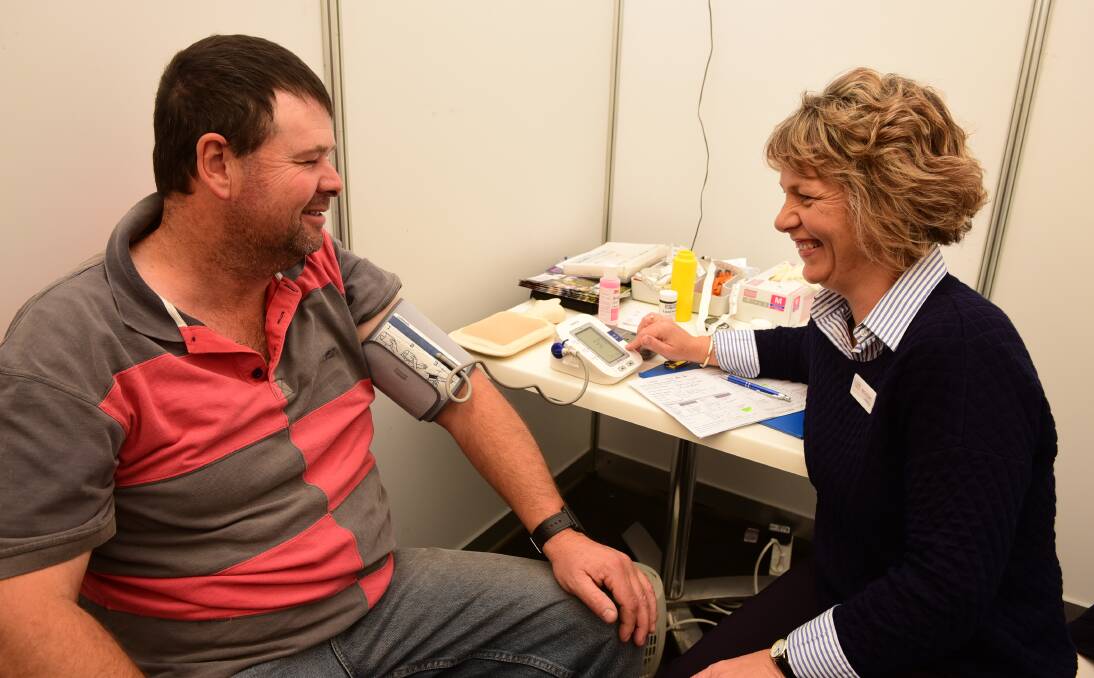
A FARM’S most valuable asset is its farmer, but it is often the thing that is neglected the most, according to the National Centre for Farmer Health (NCFH).
Subscribe now for unlimited access.
or signup to continue reading
Tasmanian agriculture industry experts have thrown their support behind an initiative by the NCFH to encourage all farmers to get their health checked.
It can be as easy as popping down to the Rural Bank stand at Agfest and taking the free health check being offered by the centre.
Industry experts the Tasmanian Farmers and Graziers Association and Rural Alive and Well threw their support behind the initiative at Agfest on Friday.
NCFH director Susan Brumby said the 20-minute health checks looked at blood pressure, diabetes, cholesterol, BMI and mental health.
In addition the centre is focusing on encouraging farmers to talk about bowel screening as well as protective equipment, and the use of ATVs.
“All farmers’ businesses depend on the health of the farmer, they need to be fit and healthy to do their farming duties,” Ms Brumby said.
Ms Brumby said statistics showed that people who lived in rural communities had worse health outcomes than those who didn’t and was encouraging people to put their health in the front seat.
“We’ve had people coming through for the checks and others just want a bit more information,” she said.
It’s been a difficult year and off the back of a dry season that is still having effects both emotionally and mentally.
- RAW's Danial Rochford
Rural Alive and Well chief executive officer Danial Rochford said farmers physical and mental health should be paramount.
He said it was important that farmers knew that help was available if they needed it, especially during these tough times.
“It’s been a difficult year and off the back of a dry season that is still having effects both emotionally and mentally,” he said.
Rural Alive and Well has experienced an increase in people seeking help, particularly in areas where the organisation has recently extended. The organisation is flying to Flinders Island weekly and now has an officer at St Helens.
Mr Rochford said the fact people were accessing the services meant the tide was changing on how people thought about mental health.













